QuestionHello, I have a 22 year old PB Arab that has been a show horse all his life and has within the last couple years been retired. He was on a sweet feed for most of his life, but I have recently switched him to Cool Command by Front Runner Feeds. It has little to no starch and is supposed to much better for them. Recently I've notice he just looks drained and tired a lot of the time. He has lost a little weight as well. My horses get fed at 6:30 in the morning (grain and hay) then get turned out until 6:30 at night when they come in and get grain and hay again. He was on bute/aspirin since he was 4 because of some leg issues. I took him off both when I got him back (I sold him when he was 10 and got him back last year) because he stays sound with good shoeing and easy work. I'm concerned about his expression though. I'm wondering if he's missing something nutrionally. The vet doesn't seem to concerned, but since I know him so well I really think there's something going on. Any suggestions? I first noticed the change in him when they switched to night turn out, so I thought he was just tired from being out at night and in during the day. They've been back to day turnout for a month now, and he's the same.
Thanks!
AnswerHi Stefanie,
Thank you for question. There is no doubt in my mind that if you believe there is a change in your horse, there is a change in your horse. In your vet's defense, if they do not see the horse frequently they don't have a point of reference for moderate changes in your horse's behavior.
There could be a number of things in play right now and I have a few suggestions that you could try to see if they help. If your horse has a history of light soundness issues, the additional stress of age and lack of rest at night could be playing a factor in his behavior. Maybe he's a little sore (but not unsound) and it is showing in his everyday expression? One nutrition phenomenon that is sometimes overlooked is that injured horses actually have slightly higher nutrient requirements (of various nutrients) than they would if they were un-injured...which explains weight loss in injured horse even when they are on stall rest. Pain killers of some sort would help the problem if this is the case, and will get him back to normal fairly quickly. Having said that, I am NOT a fan of bute or aspirin long term because of the effects of the digestive system. Horses secrete higher levels of digestive enzymes in response to orally administered bute...and these enzymes are very acidic, eroding the stomach lining and creating ulcers. For these long term cases, I really like 'Regenerex' sold by Basic Equine Nutrition. It contains different nutrients that help with lameness but most importantly contains a more natural plant based anti-inflammatory that works very well without the same nasty side effects. I've had customers use it on arthritic horses long term with great success.
There are a couple of nutrients that, when lacking in a horse's diet, could create a horse that is un-thrifty. A lack of salt in the diet can cause a horse to look a little listless, with a dull coat and a slightly ribby appearance without really being skinny. I worked with an older horse like this that lacked salt even though he had access to a salt block. We added loose salt to his grain and within 10 days he looked like a new man. In this case, the real clue lied in the fact that he drank tonnes of water and peed excessively in his stall at night...a hint that the lack of salt was preventing him from retaining the water that he was drinking.
I have found some horses present like yours with mild mineral deficiencies (severe deficiencies give more serious symptoms). It is interesting to note that when forages grow in a wet year (or wet environment), they don't have to work so hard to pull nutrients from the ground. The result is a plant that is more dilute, and less mineral dense...as it pulls minerals from the ground it grows in. In the area where I live, we had 3 very wet summers in a row and the result was three years of hay that had less than a third of the mineral content that would be normal for this region. This had a significant impact on bone development, growth and maintenance for a lot of horses. If you think this may be the case for your horse, the suggestion would be to feed a mineral/vitamin premix (preferably pelleted). Mineral deficiencies are quickly remedied and you would see an improvement in just a couple of weeks.
These are the first things that come to mind, and I would suggest you try one possible solution at a time as it will give you an idea of what the true problem may be. I hope one of these helps your horse, but if it doesn't please let me know and I'll try and brainstorm. Any additional information that you could provide would be great...like any changes in diet, eating habits, etc.
Thanks, Corlena

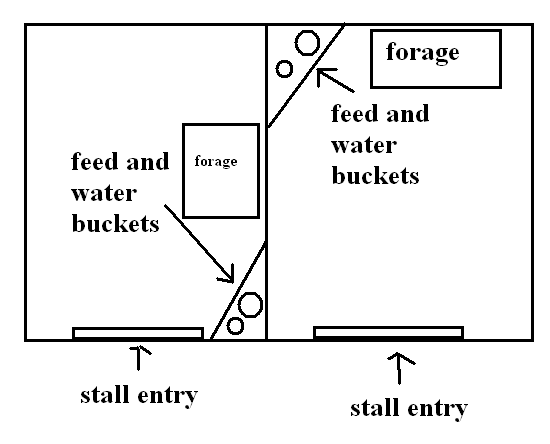 position for feed box, water bucket in the stall
Question
position for feed box,
hello, where should the
position for feed box, water bucket in the stall
Question
position for feed box,
hello, where should the
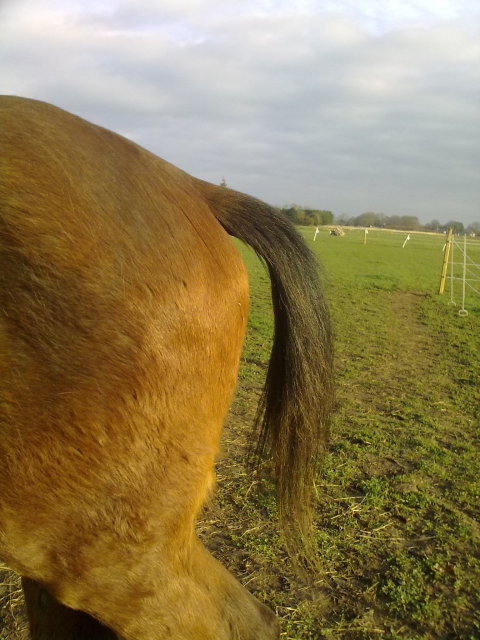 Horse Hair loss
Question
Tail
2 year old mare Appaloosa X shire
Horse Hair loss
Question
Tail
2 year old mare Appaloosa X shire
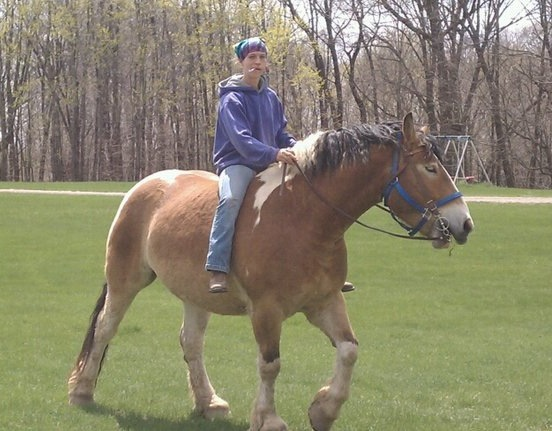 My new draft horse.....
Question
Bubbs Gentle Giant
I have just pu
My new draft horse.....
Question
Bubbs Gentle Giant
I have just pu
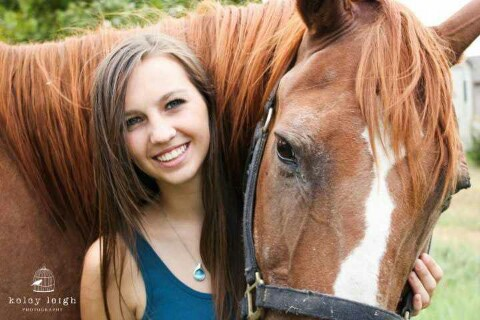 Senior Winter Care
Question
Doc and I
My horse is 29 and will turn
Senior Winter Care
Question
Doc and I
My horse is 29 and will turn
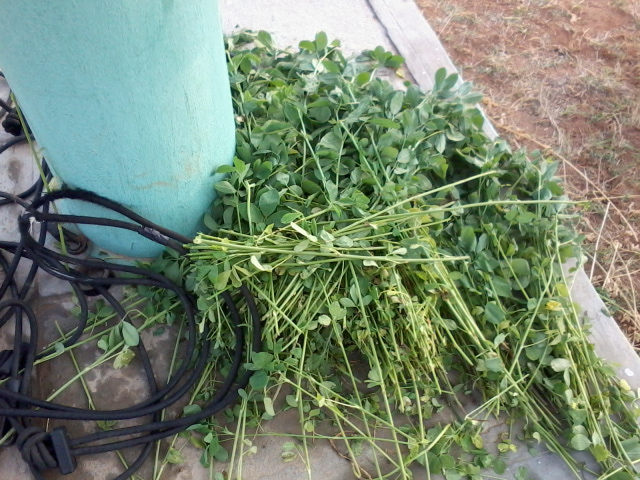 alfalfa grass for baby horses
Question
alfalfa grass
hello maam, my trainer ke
alfalfa grass for baby horses
Question
alfalfa grass
hello maam, my trainer ke